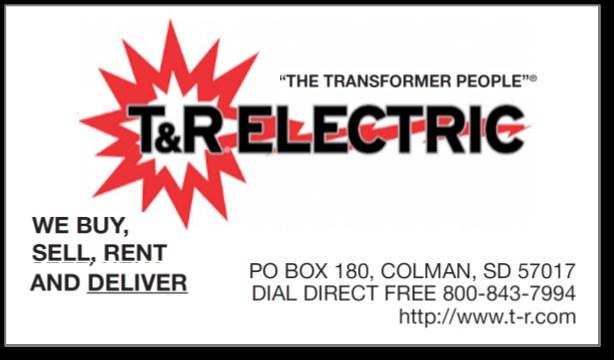




Nearly one-third of the state ’s municipal utilities met in Stevens Point for MEUW ’s Service Territory Symposium on Oct. 27. Twenty-four of the 81 municipal electric utility companies in Wisconsin participated in the event, which was designed to support collaboration and contribute clarity to the increasingly complex issue of municipal utility service territory boundaries.
As Wisconsin communities grow and change, more utilities are encountering disputes about who has the right to serve newly annexed areas, even within existing municipal boundaries. While some members have successfully negotiated territorial agreements with neighboring utilities, others continue to face ongoing challenges. Recognizing that these disputes have major implications for the future of public power, MEUW convened this forum to hear directly from experts on the frontline of the issue, including those impacted by territorial disputes and attorneys who are well versed in the nuances of state laws and regulatory oversight.
The symposium featured presentations by attorneys Anita Gallucci and Julia Potter of Madison-based Boardman Clark law firm, who provided background on relevant state laws, Public Service Commission (PSC) rules, and notable cases involving territorial disputes. Participants also reviewed examples of territorial agreements and shared their own experi-
ences in working to protect and extend their service areas.
A key outcome of the meeting was providing direction to the newly formed ad hoc committee, established by the MEUW Board of Directors, to further evaluate ways the association can take a more active role in supporting members. The Service Territory Extension and Protection (STEP) committee will consider both short-term initiatives and a potential legislative solution that will take longer to achieve.
Next steps and measures of success Participants outlined several priorities to guide future efforts related to service territory disputes and other initiatives:
◼ Develop“Gold Standard” agreements: Ensure all MEUW members have access to strong, well-crafted territorial agreements with neighboring utilities.
◼ Advance fairness in taxation: Advocate for foreign utilities operating within municipal boundaries to make tax payments equivalent to municipal utilities’ PILOT payments.
◼ Create shared databases: Establish MEUW -managed databases to track service territory boundaries, rate case frequency, and related data.
◼ Expand member engagement: Encourage utility leaders to reach out to peers not present at the Symposium to identify competitive overlaps and gather broader input.
◼ Establish best practices: Explore development of MEUW policy guidance on the frequency and approach to rate cases.
◼ Learn from others: Study how other Midwestern states handle service territory issues and explore ways to apply relevant lessons in Wisconsin.
The discussions underscored the importance of a unified, proactive approach to protecting municipal utility interests and the symposium was an important first step for continuing collaboration. MEUW members are encouraged to get involved and share information about their own territorial boundary concerns. Please contact Director of Legislative and Regulatory Relations Tyler Vorpagel to learn more about this effort.⚫
Electric Operations Conference in January is full of opportunity for all Page 2
MEUW News Monitor Page 3
Utilities celebrate Public Power Week with their communities Pages 5 -6
Mike Reynolds set to retire after 35 years leading Boscobel Utilities Page 7
Wisconsin Utility News Digest Page 9
MEUW Calendar of Events Page 12
Employees from Wisconsin ’s municipal and cooperative electric utilities will have the opportunity to learn and network at the upcoming annual Electric Operations Conference & Expo (EOCE). Registration is now open for this year’s event, which is set for Jan.14–15 at the Kalahari Resort in Wisconsin Dells. The agenda includes a variety of dynamic speakers covering topics critical to the successful operation of municipal and cooperative utilities.
MEUW will hold a Board of Directors meeting at 10:00 a.m. on Wednesday, Jan. 14. The Conference itself will kick off at 1:00 p.m. that afternoon, with general session presentations for both MEUW and co-op attendees. The conference Welcome Reception will begin at 5:00 p.m.
The program for Thursday, Jan. 15, includes general sessions, smaller breakout sessions, facilitated topical cohort discussions, and a keynote presentation from a professional safety speaker. It will be followed by the annual banquet honoring graduating apprentices in line work and electric metering.
In response to positive member feedback, the Expo will take place over five hours, allowing attendees ample time to interact with the large number of utility suppliers who have registered to exhibit. The trade show will open at 9:30 a.m. and continue through 2:30 p.m. Attendees can choose to visit the Expo Hall or attend breakout and cohort sessions.
A representative from the Wisconsin Emergency Management Agency will share perspectives on how the increase in storms and storm-severity is affecting emergency management and what utilities can do to be more prepared. We will also hear from Prof. Line Roald from the University of Wisconsin Department of Electrical Engineering, sharing her research on data centers, their electricity needs, and potential impacts to utilities.
Wednesday will wrap up with a high-energy presentation on strategies for personal resilience during stressful times, led by professional speaker Brenda Clark Hamilton.

Jan. 14 & 15, 2026
Thursday’s program begins with a presentation from ATC ’s Vice President of State and Federal Affairs Ellen Nowak on the state of transmission and the Midwest grid. Then we ’ll hear from Dave Krause, PE, as he shares his insights on battery storage and power stations. The day also includes one round of breakout sessions, focused on safety inspections, stray-voltage testing, and the use of AI and drones to enhance utility security and sustainability. Expo Bingo will also be back in 2026, giving Expo visitors the chance to win a wide variety of exhibitor-donated door prizes.

There are three different options for registration passes Kilowatt, Megawatt, and Gigawatt providing different levels of access to conference sessions and the Expo. The Megawatt pass offers access to Wednesday evening ’s Welcome Reception and Thursday ’s conference sessions, meals, and the Expo making it convenient for those who don ’t want to miss the networking with exhibitors. MEUW members who register by Monday, Dec. 1, will pay $325 for the Gigawatt pass or $225 for the Megawatt pass. There are also special rates for retired public power employees who wish to attend to reconnect with former colleagues and keep up with what ’s happening in the electric utility industry.
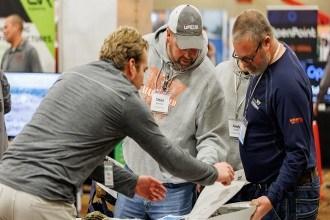

Wednesday’s general sessions will include a presentation by Wisconsin Public Service Commissioner Kristy Nieto, who will give her perspective on the current regulatory environment and areas state utility regulators have in focus.
Kalahari ResortWisconsin Dells www.meuw.org/eoce EOCE26
Following lunch, Mike Bremel, Alliant Energy Director of Technical Solutions and Federal Funding, will share a proposed innovative energy storage project, developing an “energy dome.” Several topical cohort discussions will also be facilitated around topics like safety, advocacy and mutual aid, and attendees can select which to join.
The day will be punctuated by an inspirational reminder of the importance of believing in safety. Brandon Schroeder will share his amazing survival following a catastrophic workplace accident and the lessons it taught him about the real cost of shortcuts and the power of personal responsibility.
The Apprentice Graduation Banquet will take place Thursday evening and features a brief program to recognize the class of 2025, who completed the lineworker and meter technician programs at Chippewa Valley Technical College, and Northeast Wisconsin Technical College. There is a separate registration and $60 fee required to attend the Banquet.
Full details about the conference, including a complete list of sponsors and registration information, is availablehere. ⚫
As part of MEUW ’s professional development programming, this one-day Leading With Consistency course focuses on why consistency is essential to being an effective utility leader. Participants will take away practical ideas they can apply to become a consistent leader, discover how consistency can help to inspire people to work toward a common goal, and learn to be a more consistent and influential leader. Clickhere for full details aboutthe instructor and what you’ll learn, and registertoday.
The foreman role is important to safety and efficiency when operating a utility. The people leading utility line crews face common challenges and often don’t have an opportunity to talk with others facing those same challenges. This meeting will enable electric utility foremen to share ideas, learn from one another, and develop leadership and communication skills, especially regarding safety.
Understanding the various financial aspects associated with utility operations is essential for anyone in a management position. The next one-day course in MEUW ’s four-part Fundamentals of Utility Management Training Series, Utility Accounting & Finance, will provide attendees the fundamentals of public utility accounting, a clear understanding of business operations, and how to review and effectively manage budgets. Training is planned for Wednesday, Feb. 11, in Mauston. Registerhere.
MEUW and Chippewa Valley Technical College (CVTC) have organized an Apparatus Workshop for Feb.10–11. Held at CVTC ’s campus in Eau Claire, this workshop will cover topics such as jobsite safety, capacitors, voltage regulators, reclosers, trip savers, meters, and connectors/connections. (Final topics may change depending on presenter availability.) Details and registration information can be foundhere.
The next Foreman’s Roundtable will be held Wednesday, March 25, atPinSeekersin DeForest. The day’s agenda will include discussion on topics most important to the attendees. Following the Roundtable, attendees will have the chance to take part in an optional team building and networking activity at the hybrid golf facility. Save the date and plan to attend; a full agenda and registration details will be available soon.
Offering both classroom instruction and hands-on practice, this one-day Underground Facility Locator Workshop will be offered on Wednesday, April 1, in Spooner. It will cover information found in Units 1-3 of the National Utility Locating Contractors Association (NULCA) Professional Competency Standard including locating theory and use of the transmitter and receiver. All learners will receive a certificate documenting the training required. Mark your calendars registration will open early next year.
See how easy it is to get involved in MEUW ’s advocacy activities — attend December webinar
Advocating in the best interests of municipal utilities is foundational to MEUW ’s existence. Yet fewer and fewer members actively engage in the association ’s advocacy work. Make plans to join your public power colleagues for“Advocacy101” a free 90-minute webinar on Thursday, Dec. 4 at 10:00 a.m. to learn about the legislative process and hear how everyday people are using their voices to influence lawmakers.
In this interactive session, MEUW will break down the basics in a simple, practical way. Participants will take away:
◼ What advocacy is (and how it’s different from lobbying);
◼ Why advocacy matters to our communities, industry;
◼ An understanding about the key decision-makers, who they are and how they shape policy; and
◼ Ideas to share your story and get your message across.
The webinar will also include a short practice exercise to try out an “elevator pitch” and share tips for having conversations with lawmakers.
No experience is required just bring your curiosity and a willingness to give it a try. By the end, you ’ll walk away with a few simple tools and a better understanding of how everyday people can make a real difference. The webinar is free, but pre-registration is required sign up now
MEUW members get together over Teams on the first Tuesday of every month to discuss important safety updates, share stories about near-misses and lessons-learned, and stay informed. The next regularly scheduled call is Tuesday, Dec. 2, at 7:15 a.m. For details about how to join, read the informationhere
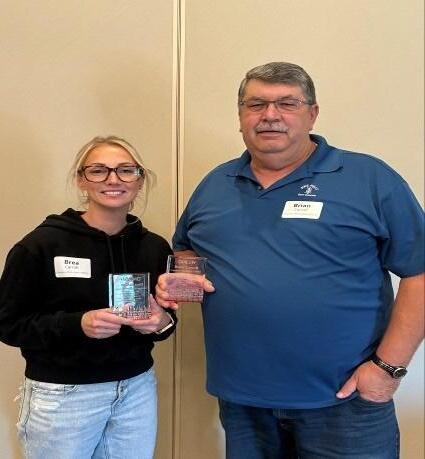
Gresham Municipal Utilities’ Brian Carroll , Operations Manager, and Brea Carroll , Financial Supervisor, recently completed MEUW ’s four-part Fundamentals of Utility Management Training Series. The uncle and niece-in-law, who pursued their professional development side by side and participated in the classes together, each received a commemorative trophy to celebrate the achievement.

The City of Clintonville held an open house on Oct. 9 to celebrate Public Power Week and the completion of its new headquarters for Clintonville Utilities. The 26,000square-foot facility is adjacent to the original operating building and now houses office staff and utility personnel and equipment under one roof. Inside the garage area, planners made space for a utility pole (shown above) that can be used to complete required pole-top rescue training regardless of the outside conditions. The new facility also features an area designed specifically for confinedspace training, as well as other elements that make the entire work environment safer and more efficient.



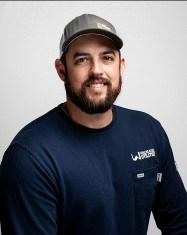
Sam Trace was recently promoted to Electric Superintendent at Waunakee Utilities. He joined the utility in 2018 as an apprentice lineman, after completing the electric power distribution program at Moraine Park Technical College in 2017. Prior to taking his new role, Sam was journeyman lineman, lead lineman, and operations manager. He also completed the meter technician apprenticeship.
Christian Klarich recently joined Kaukauna Utilities as Relief System Operator.
Lee Kucher , Administrator of the Village of Wonewoc, retired Oct. 31, after 18 years in the role.
Send us your news! Tell MEUW about new hires, promotions, retirements, honors, and awards, so those tidbits can be shared in MEUW member communications. Simply send an email to news@meuw.orgto share your news.




Official monthly publication of Municipal Electric Utilities of Wisconsin, Inc. , the statewide trade association representing the interests of Wisconsin’s public power providers since 1928. This e-newsletter is distributed to more than 1,200 utility professionals and leaders throughout Wisconsin and the Midwest on the first Tuesday of every month.
LIVE LINES has been published continuously for many decades and provides useful information, news on emerging utility issues and legislation, updates on events, training programs and member services, as well as engaging feature stories spotlighting utilities, communities and leaders.
Reader comments and suggestions are welcome send by email to news@meuw.org
Tim Heinrich President and CEO
Mike Czuprynko Director of Safety Services and Operations
Tyler Vorpagel Director of Legislative and Regulatory Relations
Sharon Wolf Manager of Communications and Events
MEUW Office
725 Lois Drive Sun Prairie, WI 53590 (608) 837-2263
www.meuw.org

An archive of past issues of Live Linesis available at www.issuu.com/meuw
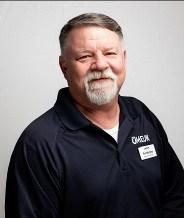
Regional Safety ManagerPat Murphy is celebrating five years of service to MEUW and its members this month. He delivers safety services and support to municipal employees in communities that include Eagle River, Kaukauna,Menasha, New Holstein,and Stephenson, Mich.He first joined MEUW on Nov. 30, 2021.
The first full week of October is the public power industry ’s annual opportunity to celebrate the benefits of being community-powered. Many MEUW member communities hosted special events and festivities during the Oct. 6-10 celebrations this year. Here ’s a roundup of some events:

◼ Kaukauna Utilities turned its celebration into a three-week affair! They held a Community Night event to celebrate public power and family fun, featuring bounce houses, face painting, balloon animals, food, an electric vehicle car show, and more. Customers were encouraged to come meet the team behind their electric and water services while exploring what makes their community-powered utility unique. KU also held a coloring contest, with 17 classes from four area schools coloring a giant poster. The poster with the most“likes” on Facebook won a pizza party and a $500 donation to their school. To demonstrate their support of the impact of small businesses on the local economy, KU hosted a pre-order, pick-up Business Appreciation Brat Fry, serving nearly 1,400 brats to 66 Kaukauna areas businesses.
◼ The Public Power Week event in Menasha was so popular customers began lining up more than two hours ahead of time!Menasha Utilities offered customers a series of stations featuring the street light outage maps, going solar, water leaks, WPPI Energy’s Power Town, and an electricity demo, as well as offering giveaway items.
◼ Rice Lake Utilities celebrated with giveaway items for customers in the lobby each day, and a food truck Tuesday and Thursday.Each day, they offered free lunch tickets (up to $15 value) to the first 100 customers.The customers really enjoyed the goodies and the free lunch, sharing quite a few compliments.
◼ Stoughton Utilities celebrated with a fun and educational trivia and photo contest that encouraged customers to learn more about their local utility services. Trivia questions were included with September bills, allowing participants to uncover a secret code word for a $10 bill credit and a chance to win a $200 Visa gift card. An additional $200 gift card was awarded through the Bonus Photo Contest, which invited customers to share what public power means in their daily lives. Participation reached record levels, with 149 trivia submissions and 21 photo entries. The creative photos and positive feedback highlighted the community ’s appreciation for the reliable, locally owned utility that powers their homes, traditions, and everyday moments.
Continued on page 6

When MEUW came into being nearly 100 years ago, the founding organizers had become frustrated because the large investor-owned utilities were better represented in discussions affecting power companies at the time. They recognized the value of having a common message a unified voice to highlight the advantages of municipal ownership of electric utilities. That ideal remains relevant today. MEUW is committed to sharing the public power story and educating others about the unique qualities that make municipal electric utilities stand out. This storytelling happens all the time and is important to unifying and strengthening public power in Wisconsin. In this periodic feature, LIVE LINES showcases “Advocacy in Action”to highlight the many ways our members engage in advocating for municipal electric utilities.
Municipal Utilities 101 is part of “Basics ”training course
Manitowoc Public Utilities Chief Financial Officer Cindy Carter shared details about municipal utilities at “Energy Utility Basics” training organized by the Wisconsin Public Utility Institute (WPUI) in early October.The annual course offering provides attendees an overview of the history of the electric and natural gas industries, insights into regulatory deci-
Many MEUW members helped promote the value of municipal ownership through Public Power Week celebrations and activities in early October (see article beginning on page 5). Sharing the public power story isn’t reserved for one week out of the year. We want to hear what you and your community do to spread the word.Please let us know !
sion-making, discussion about current issues facing the energy industry, and more.The week-long training class caters to individuals working in the energy industry, including public interest groups, utility employees, legislative staff, regulatory staff, and state and local government personnel.About 55 people took part in this year ’s training inperson (including 35 who were employees of the Public Service Commission [PSC]). Together with virtual attendees, 120 individuals took part. Carter joined representatives of Dairyland Power Cooperative and Xcel Energy in a presentation/roundtable discussion about “Utility Company Models.” She outlined the municipal electric utility model and discussed regulation (both local and PSC oversight), community benefits, power supply, among other details. More information about WPUI and the training course can be foundhere.
he didn’t have any particular needs, Gomm recently reached out to Rep. Behnke again to arrange for a meeting and give him an update on what was going on at SMU. They chatted about things going on in the community, and at the utility.“It’s really about maintaining the relationship,” Gomm said.
When Rep. Elijah Behnke (R-Town of Chase) was elected to the Wisconsin State Assembly, Shawano Municipal Utilities General Manager Bruce Gomm reached out to him to offer a tour of SMU’s new facility. The two met and chatted about public power, establishing a relationship, and committing to staying in touch. Although
Public Power Week wrap -up
Continued from page 5
At times, elected officials and local residents may debate whether the community should continue to own and operate its electric utility. While the public power model has proved successful for more than a century, running a utility comes with challenges that may seem insurmountable sometimes, especially to those tasked with governing their local utility. Like many challenges, the solution is often found through a debate about what ’s important and the consequences of inaction or delay. The American Public Power Association (APPA) has resources to assist in understanding the benefits of public power. Likewise, MEUW leaders are available to attend community meetings or visit with utility governing bodies to share success stories and identify opportunities to strengthen locally-owned utility operations. To learn more, contact MEUW President and CEO Tim Heinrich or talk with any member of MEUW ’s Board of Directors . ⚫
◼ Sun Prairie Utilities participated in several events throughout the week. SPU sponsored and employees volunteered at Sunshine Supper, providing free meals to those who need one. They also participated in library reading and a “touch a truck” event, and held a coloring contest. Staff drove to the winner ’s home and presented him (and his little brother) with plastic hard hats and stickers.⚫

By Sharon Wolf
When opportunity knocks, it’s a good idea to open the door. Mike Reynolds, City Engineer/Director of Public Works for the City of Boscobel/Boscobel Utilities, built a career on doing just that.
Born and raised in Boscobel, Mike graduated from the University of Wisconsin-Platteville in 1980 and was planning to join the Air Force. On his way to get his physical exam, he took the opportunity to interview at a County Highway Department in Illinois and soon after became the Assistant Superintendent of Highways. After achieving his Professional Engineer (P.E.) license in 1985, Mike returned to Boscobel and worked for his father’s construction company until he started Michael Reynolds Engineering in 1986.
Mike saw his business grow, and knew he either needed to expand or start declining jobs. At that time, two members of the Boscobel City Council knocked on his door, presenting him the opportunity to become the City Engineer/Director of Public Works, replacing Dave Mikonowicz who was leaving for Reedsburg. Mike said yes to that opportunity and launched a career working for the city that’s lasted more than 35 years.
The topic of wholesale power is something that Mike feels is hard to zero in on, given different administrations having different views and interests and the development of new technologies.
He appreciates the things that have remained constant over his tenure, including MEUW ’s safety training and how it helps drive commitment to keeping employees safe. He also really values the people he works with, saying, “I have to sing the praises of my employees they make me look good!”
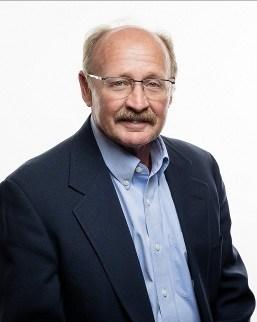
“My weakest part was the electric utility industry. I skated by with a C in an electrical engineering class,” Mike laughs. “I’ve learned so much since that point between MEUW, WPPI, and operating our own electrical utility.”
Mike has long shared his talents with MEUW and WPPI, serving on both boards of directors for decades, helping guide both organizations through industry changes. Things like retail wheeling, distributed generation and the Y2K experience.“That was a big lead up to nothing, ” Mike reflects.“We were all on standby that whole night waiting for a whole lot of nothing to happen!”
Mike also noted that meeting other member managers through MEUW really helped him build a strong sense of camaraderie, and he appreciated being able to discuss common issues with them.
What advice does he have for newer or younger workers in the utility industry?“Listen that’s the main thing,” he says.“Be open to learning the industry. Every day it seems like something new comes through the door.”
He also recommends taking advantage of MEUW’s programming and services, leveraging different opportunities to learn. Reach out to your peers with more experience to get answers to your questions. There ’s a lot of knowledge out there.”
A recruitment process is underway to determine who will take the reins when Mike leaves on Jan. 2, 2026. After retiring, he is looking forward to spending a couple of weeks in Florida with his wife, Katie. He also plans to spend more time with his three adult children and seven grandchildren.
Looking back, Mike says he’s glad he decided to take the opportunity at the City of Boscobel/Boscobel Utilities.“It’s been a good run,” he says.“I look back and I don ’t see too many negatives. That ’s a success story.”
The next time opportunity knocks, think of Mike Reynolds and open the door!⚫
plans to attend leadership workshop on March 12–13, 2026, in Wisconsin Dells
MEUW will hold an interactive two-day Leadership Workshopto support the next generation of public power leaders. With many leadership transitions happening within municipal utilities across the state, this professional development offering is designed to strengthen communication, sharpen leadership skills, and help participants lead confidently through change. The workshop will be led byNilaksh Kothari, retired CEO of Manitowoc Public Utilities, andDr. Craig Woolard, Head of Civil Engineering at Montana State University two distinguished leaders with decades of utility management experience. Participants will explore strategies to build trust, communicate effectively, manage change, and enhance team collaboration. The focused sessions will benefit utility professionals at all stages of their leadership journey. Those who aspire to roles lead ing crews or managing utility operations are encouraged to sign up. Registration details will be coming soon.

By Richard Heinemann Boardman Clark
MEUW members can often become frustrated by the constraints of being regulated by the Public Service Commission (PSC) of Wisconsin. Lengthy proceedings, costly staff inquiries, the ongoing need to educate the Commission about how municipal utilities differ from IOUs it makes many members envy our unregulated neighbors in other states (Wisconsin is one of only five states in which municipal electric utilities are fully regulated).
The regulatory framework in Wisconsin dates to 1907 when the legislature transferred municipal utility franchise authority to the state due to concerns over inefficient competition and inadequate local oversight. Under this regulatory compact, a state commission was authorized to set rates, establish service standards, permit infrastructure investment and oversee financial practices (including payments in lieu of taxes) in exchange for service territory protection under an indeterminate permit. It may not always seem that way, but in fact the PSC does a
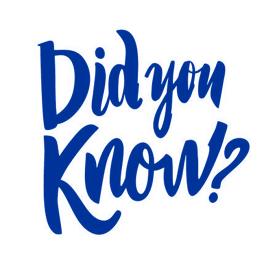
reasonably good job of carrying out its mandate of ensuring that utility services are adequate, reliable, and reasonably priced in ways that benefit municipal utility es, as well as their ratepayers. In recent years, MEUW members have obtained timely construction approvals for utility service buildings and substations; much-needed rate increases, and authorization to implement special tariffs for community solar, renewable riders, new load market-based rates and“Bring Your Own Device” demand response services.
Adhering to a few basic principles can help achieve these results:
Know the regulatory rules (and follow them)
Municipal utilities must obtain a Certificate of Authority (CA) for many types of construction projects. Costs incurred prior to obtaining the certificate are unrecoverable and utilities that incur such costs are liable to sanction. The PSC provides and periodically updates guidance about how to prepare construction applicationshere
Be responsive, timely and comprehensive when preparing rate applications Utilities submitting applications for rate increases must provide detailed information. It is critical to make sure that this information is comprehensive and responsive to foresee -
able staff concerns. Otherwise, there can be substantial delays in obtaining completeness determinations.
Involve staff early (and often) prior to (and during) the application process
That’s especially true in special tariff proceedings, where meetings with the Executive Assistant to one or more of the Commissioners, for example, can help flag issues and frame a municipal perspective.
Never hesitate about consulting with staff
PSC staff can also help outside formal proceedings. In one recent instance, a detailed staff response enabled one MEUW member to effectively navigate a complicated customer issue by explaining why the single meter rules applied to an Airbnb paired with a nontransient commercial space. PSC staff have even been known to refund assessments for staff charges when warranted (after persistent, but respectful inquiry).
Being regulated will always present challenges. But following the rules, providing timely info, and involving staff proactively can make it easier. ⚫

Attorney Richard Heinemann is General Counsel for MEUW.
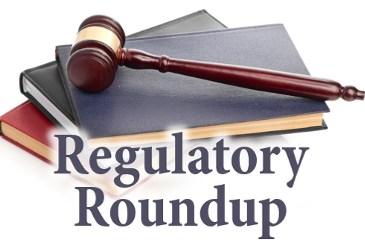
At its Sept. 25 open meeting, the three-person Public Service Commission (PSC) directed staff to open a generic investigationdocketto examine and develop a consistent approach for analyzing construction cost overruns. The investigation comes with an increase in the frequency and magnitude of cost overruns in various infrastructure construction projects the PSC considers, as well as the broader industry transition that is driving an anticipated large number of upcoming construction projects statewide. As such, the Commission agreed that greater study and analysis of the cost overruns issue was needed.MEUW submitted comments on behalf of its municipal utility members; the filing ishere.
On Oct. 28, the Commissioners voted to extend the comment period and clarified the “generic” scope of its investigation, encouraging any interested stakeholders to comment and noting that there is no need to address any specific construction project. The new deadline is Nov. 10.⚫
MEUW’s “Fundamentals of Utility Management ” training program includes a one-day course that explores the wide array of regulations that provide municipal utilities the “right to serve” electric customers. The information covered is suitable for anyone involved in the operation of a municipal utility, including elected officials and those serving on governing bodies. Participants will learn the reasons behind the rules and expert insights to make compliance easier. In 2026, the class will be offered on Wednesday, June 3, in Mauston. Registration will open in early March.
The Public Service Commission (PSC) of Wisconsin has approved two large-scale clean energy projects that will add new renewable generation capacity to the state’s energy mix. Commissioners voted 3-0 to approve the projects at the PSC open meeting on Sept. 27.
The Badger Hollow Wind Projectin Iowa and Grant counties and theWhitewater Solar Projectin Jefferson and Walworth counties are expected to provide enough power for more than 50,000 homes once operational.
The Badger Hollow site developed by Illinois-based Invenergy will have 19 turbines and is the first large wind project approved in Wisconsin in 14 years. The PSC will vote on an application by We Energies, Madison Gas and Electric, and Wisconsin Public Service Corp. to assume joint ownership of Badger Hollow once the 18-megawatt (MW) project is completed.
Whitewater Solar is a 180-MW solar project near the City of Whitewater and nearby townships. New York -based D.E.
Shaw Renewable Investments is developing the project, which will take up approximately 2,567 acres and include 23 fenced array areas across two southeastern Wisconsin counties .
Developed on private farmland, both projects will bring new investment and jobs to rural communities while advancing Wisconsin’s transition toward cleaner energy resources.
Construction on both projects is expected to begin in 2026.
More than $130 million in Wisconsin clean energy-related projects are at risk as President Donald Trump’s administration moves to cut up to $24 billion in previously approved projects. The projects slated to be cut were identified over the past six months. The online news outlet Semafor published a link to the listof projects on the chopping block.
“It’s not clear whether, or when, the full list of cancellations will be enacted, or if President Donald Trump is instead looking to use them as leverage in negotiations over the [federal government] shutdown,”Semafor reported.
According to reporting by the Wisconsin Examiner, grants from Wisconsin utilities on the list represent a mix of projects that help boost energy efficiency, including supporting the expansion of energy storage battery systems. A grant providing more than $1 million for youth apprenticeships is subject to potential cut. Another grant for Kaukauna Utilities to install battery storage and make related electrical grid upgrades is also on the list. The original grant totaled $3 million, and so far $59,362 has been paid out, according to USAspending.gov , leaving $2.95 million that could be canceled.

The regular LIVE LINES feature focusing on the history and unique qualities of municipal electric utilities will return next month.





This regular feature helps readers get to know Wisconsin elected officials and better understand their views on policies that may impact municipal utilities.
Three-term rep serves on Assembly Energy and Utilities Committee

Supreme Moore Omokunde (D–Milwaukee) represents Wisconsin’s 17th Assembly District in the State Assembly. First elected in 2020 and now serving his third term, he represents Milwaukee ’s west and northwest sides.
Since joining the legislature in 2021, Moore Omokunde has served on the Committee on Energy and Utilities. During the2025–26session, he also serves as the ranking member of both the Committee on Jobs and the Economy and the Committee on Regulatory Licensing Reform. In addition, he is Vice Chair of the Milwaukee Delegation, working with other
city legislators on issues related to economic development and public safety.
Born and raised in Milwaukee, Moore Omokunde is the son of U.S. Representative Gwen Moore and Rev. Dr. Tolokun Omokunde, a Presbyterian minister. Public service and community engagement were constant themes in his household, shaping his early interest in social and civic issues.
He graduated from Riverside University High School and went on to attend Marquette University and the University of Wisconsin–Milwaukee, studying communications.
Before entering public office, he worked for several Milwaukee nonprofits including TRUE Skool, AmeriCorps Public Allies, the Boys & Girls Club, and the YMCA in roles focused on youth and community programs.
From 2015 to 2020, Moore Omokunde served on the Milwaukee County Board of Supervisors, representing the 10th District. He participated in creating the Milwaukee City-County Task Force on Climate and Economic Equity, which set goals for reducing greenhouse gas emissions and addressing economic disparities.
Outside the Capitol, he still calls Milwaukee home and remains active in civic and cultural life. A lifelong advocate for the arts and mentorship, he often participates in community programs that aim to engage young people and nurture local talent.
Sen. Sinykin is in her first term representing southeastern counties
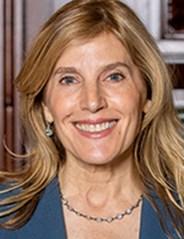
Jodi Habush Sinykin (D–Whitefish Bay) represents Wisconsin’s 8th Senate District in the State Senate, having taken office earlier this year. Her district includes portions of Milwaukee, Ozaukee, Washington, and Waukesha counties.
A Fox Point native, Sinykin graduated from Nicolet High School in Glendale before earning her B.A. from the University of Michigan and a J.D. from Harvard Law School in 1992. She began her legal career clerking for a federal district court judge and later practiced law, including time at Habush Habush & Rottier, the Wisconsin-based firm founded by her father.

In 1995, Sinykin and her husband, Dan Sinykin, purchased a Wisconsin textile manufacturing company, which later became part of Monterey Mills, a business that continues to operate today. She has said that the experience gave her first-hand insight into the challenges and opportunities facing small manufacturers in the state.
Over the past two decades, Sinykin has developed a strong professional focus on environmental law and policy, particularly in freshwater stewardship and wildlife conservation. In the early 2000s, she joined the nonprofit Midwest Environmental Advocates, where she specialized in water law and environmental governance. Her work included serving on the Wisconsin Groundwater Advisory Committee and the Wisconsin Legislative Council ’s Special Committee on the Great Lakes Compact, contributing to the Compact ’s negotiation and ratification in Wisconsin.
In the Senate, Sinykin serves on the Committee on Financial Institutions and Sporting Heritage, the Committee on Natural Resources, Veterans and Military Affairs, and the Committee on Law Revision.
She lives in Whitefish Bay with her husband, and they have four adult children.⚫

Make plans to attend the 2026American Public Power Association (APPA) Legislative Rally taking place Feb. 23–25, in Washington, D.C. Additional information and registration details are available on APPA’s Website. If you’ve never attended and are interested in learning more about the 2026 event, please call MEUW Director of Legislative and Regulatory Relations Tyler Vorpagel at (920) 265-7720.
Wisconsin residents now have expanded access to Inflation Reduction Act (IRA) Home Energy Rebates through a new pathway that allows direct purchases from retail stores. The Home Electrification and Appliance Rebates (HEAR) Program now includes instant discounts and post-purchase rebates for qualifying ENERGY STAR® appliances bought in-store or online. This expansion builds on the contractor-installed offerings launched in late 2024 and opens the door for low- and moderate-income households to reduce upfront costs on energy-efficient appliances and can help reduce energy usage in their home.
“The availability of rebates at store locations streamlines access to and accelerates utilization of program offerings so people can quickly reduce their energy usage and save money through the purchase and installation of energy-efficient appliances and equipment,” said Summer Strand, Chair of the Public Service Commission of Wisconsin.“This exciting new option is another win-win for Wisconsin.”
Rebates available include:
◼ Up to $1,750 for an ENERGY STAR® electric heat pump water heater;
◼ Up to $8,000 for an ENERGY STAR® electric heat pump for space heating and cooling;
◼ Up to $4,000 for an electric load service center (electrical panel);
◼ Up to $2,500 for electrical wiring upgrades;
◼ Up to $1,600 for ENERGY STAR® insulation, ventilation, and air sealing;
◼ Up to $840 for ENERGY STAR® electric stoves, cooktops, or ranges when upgrading from a non-electric unit; and
◼ Up to $840 for ENERGY STAR® heat pump clothes dryers.
MEUW and Northeast Wisconsin Technical College (NWTC) have long partnered to deliver the WattHour Metering School to member utilities. This year, both organizations agreed that NWTC would take on the primary role in planning, developing, and delivering this vital training. Due in part to resource constraints at both organizations, the WattHour Metering School will not be held in 2026. However, NWTC plans to offer the training again in 2027 with a refreshed approach. MEUW will share details about the training through regular communications once NWTC announces them.
Income-qualified households can receive up to 100 percent of project costs covered, with a maximum rebate of $14,000. Households earning less than 80 percent of the Area Median Income (AMI) qualify for full coverage, while those earning between 80 and 150 percent of AMI may receive up to 50 percent of project costs.
Wisconsin residents can now use the HEAR program in two ways. Customers can purchase from any store or website that carries qualifying products. Retailers may offer instant discounts, or customers can submit receipts and installation documentation for post-purchase rebates. Customers can also work with IRA Registered Contractors to install qualifying upgrades such as heat pumps, insulation, or electrical panel upgrades.

This retail pathway is especially impactful for customers in rural or underserved areas where contractor access may be limited. By enabling purchases through retailers, the program ensures that income-qualified households can benefit from these federally funded rebates regardless of contractor availability. Municipal utilities can support this effort by engaging with local retailers, encouraging them to participate in the program, and helping them understand the requirements. Retailers who sign a Participation Agreement will be listed on the officialIRA Find a Contractor and Retailer tool , making it easier for customers to locate rebate-eligible products and services. More information, including a retailer overview video and participation resources, is available atIRA Home Energy Rebates ⚫
MEUW provides Focus on Energy the opportunity to regularly contribute content toLIVE LINES because of the organizations ’ shared support of municipal utilities.


Autumn brings many opportunities for fun activities— indoors and outside. As you enjoy the season, remember to take your safety focus with you:
◼ When hunting, always treat every firearm as if it's loaded, keep it pointed in a safe direction, and be absolutely sure of your target and what is beyond it before you shoot.

◼ Whether driving for holiday gatherings or just to and from work, prioritize focus and avoid distractions to prevent accidents. Put away your phone, avoid eating or adjusting the radio, and give your full attention to the road, especially in heavy traffic or bad weather.

MEUW is pleased to promote job openings with its member utilities across Wisconsin. New positions are regularly added to our website check them out here or use your smartphone to scan the QR code below . Here are some current opportunities available:
Stoughton Utilities Journeyman Lineman
Shawano Municipal Utilities Journeyman Lineman
City of River Falls Facilities and Fleet Manager
December 2 Monthly Safety Call 7:15a.m.
December 3 Municipal Utility Leadership Program: Leading with Consistency Mauston
December 4 “Advocacy101”Webinar 10:00a.m.
January 6 Monthly Safety Call 7:15a.m.
January 14 MEUW Board of Directors Meeting
Jan. 14 & 15 Electric Operations Conference & Expo Kalahari Resort, Wisconsin Dells
January 15 Apprentice Graduation Banquet
February 3 Monthly Safety Call 7:15a.m.
Feb. 10 & 11 Apparatus Workshop Eau Claire
February 11 Fundamentals of Utility Management: Utility Accounting & Finance Mauston
◼ While making holiday meals, stay attentive while cooking, keeping children a safe distance from heat sources, and having a fire extinguisher handy (just in case). Visit MEUW.org for


When your utility is hiring, be sure to email the job posting to office@meuw.org

